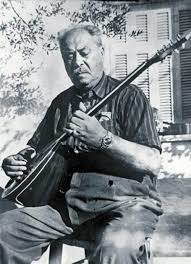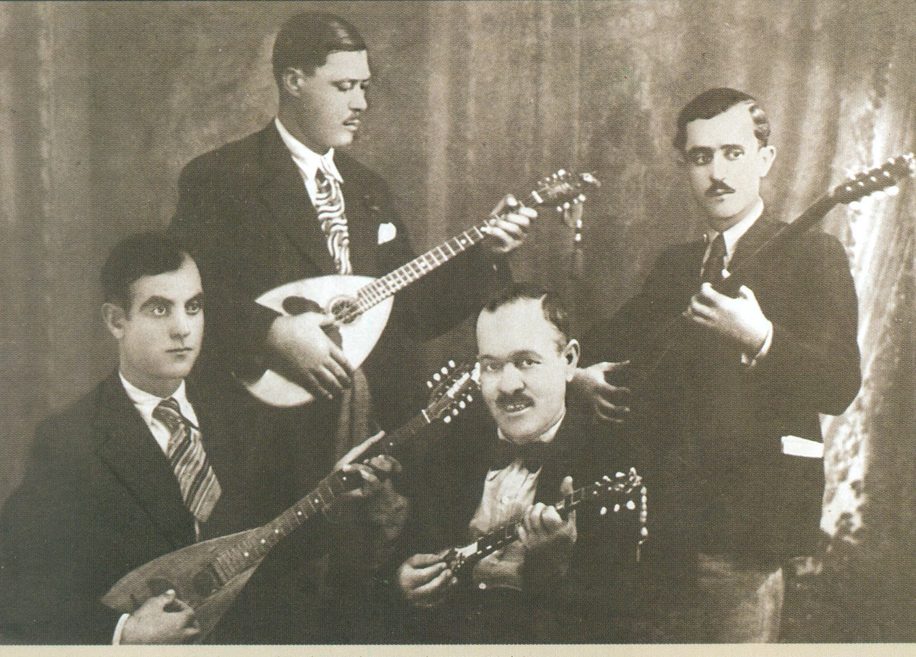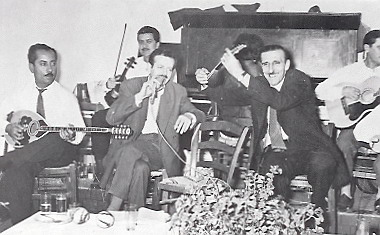As Kounadis states,
´´What we mean with Rebetiko is the songs of those who can wonder around aimlessly, who are the dreamers, or ´´flaneurs´´ as they used to say. They are beautiful songs written by young people.´´ (Kounadis P., DIALOGUES: The History of Rebetiko. Stavros Niarchos Foundation, P. 2019).
According to Kounadis, Rebetiko is the creation of Greek populations once living in the Ottoman Empire, especially Izmir and Istanbul, where, in cooperation and co-existence with other ethnic groups and minorities found in those cities, this music genre was born. Early recording of all genres of Greek music are made already in the beginning of 1900. The same music passes to Greek space, but the recordings start after 1922 in Athens. At the same time loads of talented Greek musicians flee from Greece to America in search of a better life.
As another approach, according to S. Gauntlett (1983), we see Rebetiko described in a different way:
´´The wretched underworld … does not fail to have its songs and these are – for Greece – the rebetika.
Rebetis doesn't mean underworld, nor is the rebetiko its song.
Contradictory statements such as the above are characteristic of the controversy which has surrounded the song tradition loosely called ‘rebetiko’, since it first became a cultural thème du jour in Greece in the late 1940s. ´´
In September 2019, whilst attending a lecture by Mr. Risto Pekka Pennanen (TaU/Sibelius Academy) I heard another opinion based on the detailed research:
´Various scholars and rebetiko enthusiasts have suggested numerous possibilities for origins of the word ‘rebetiko’ – a baker’s dozen and beyond. None of them, however, is watertight. Furthermore, the early history of the term ‘rebetiko’ is of distinct interest, recording industry being instrumental in the usage and spread of the word; the motivation behind the usage was certainly commercial. That said, it remains uncertain what the buyers supposed to have purchased when selecting a recording with the characterisation ‘rebetiko’. As axiomatic from record labels, categorisations in record catalogues and song lyrics, the contextual meaning of the term remained nebulous in the initial and mid-stages of the history of Greek recorded music´ (Pennanen, R. P. and Heimolinna, E. Lecture series “Laying Eggs of Columbus?: The Etymology and Contexts of the Word ‘Rebetiko’” , 29 September 2019)
During my search for information, I began to understand that the definition of rebetiko is not only blurry, but it is somewhat lost in History. So, what better way than to unfold it through history itself and try to figure out how we ended up where we are.
According to Panagiotis Kounadis as well as Aydın Çıracıoğlu, towards the end of 1800 the movement of Rebetiko was born at the same time in Minor Asia and Istanbul, and at the time at the few urban centres of Greece. As all the researchers of the movement describe what we call rebetiko was not the music but the way of life, thus it had a musical and a social aspect at the same time. It is the music of the and the way of life of the lower classes that come to conflict with the way of life of the upper class and even more with the middle class, with any kind of authority and everything that would eventually strip the liberty and the free way of life of the people, even the law itself.
In 1922 after the Balkan wars and the end of 1st world war, due to political reasons, post war reasons, and Greece’s failed attempt to reoccupy grounds in Turkey that were thought to be historically linked to Greece, we end up to the violent move of Greek populations out of Minor Asia and Istanbul as exchange of populations between the two countries. This fact results in the moving of people who carry their traditions with them. Traditions that were coexisting in the two countries and were above Nations, borders and territorial classifications. The Greeks of Minor Asia reach Greece as immigrants and are treated so by the Greek population in many cases. The traditions and especially the music, has a hard time to find place in Greece but is strong enough to be embodied in the society over time. Along with the traditions big Greek composers and educated musicians of Turkey find their new homes in Greece bringing with them their music their instruments and their art.
In his article ´´Rebetiko: Historical, sociological approach´´, Panagiotis Kounadis mentions that ´´the detachment of these Greek ´´immigrants´´ from the function of the socio-economic system allows them to preserve important elements of their cultural legacy relatively pure.´´
When the two Greek populations merge the way of life and the music of Rebetiko flourishes.
A detrimental role in the bloom of this played the introduction of bouzouki and baglamas in the music. New ideas, scales and melodies are created borrowing musical elements from songs, melodies and rhythms from Greek folk as well as the ´´immigrants´´ music.( Kounadis, P. Rebetiko Historical, sociological approach. Greek music information centre, 2019)
As we can see from history, Rebetiko has moved through all kinds of stages, from being illegal all the way to being the basis of the new popular music of Greece between 1920 and 1950. Today it stands strong, signifying a major part of Greek urban folk music.
As a way to understand the way we will approach the music in the Project Rebetiko 2.1 (a.k.a. Home), let us first define the original versions of the songs as they were recorded from 1920 until 1960 in the this first stage of the project titled Rebetiko 1.0.
Here we have a brief sample of the original recordings of the compositions,
for the purpose of exploration of the genre and also providing some background information on the music we based our project on.





